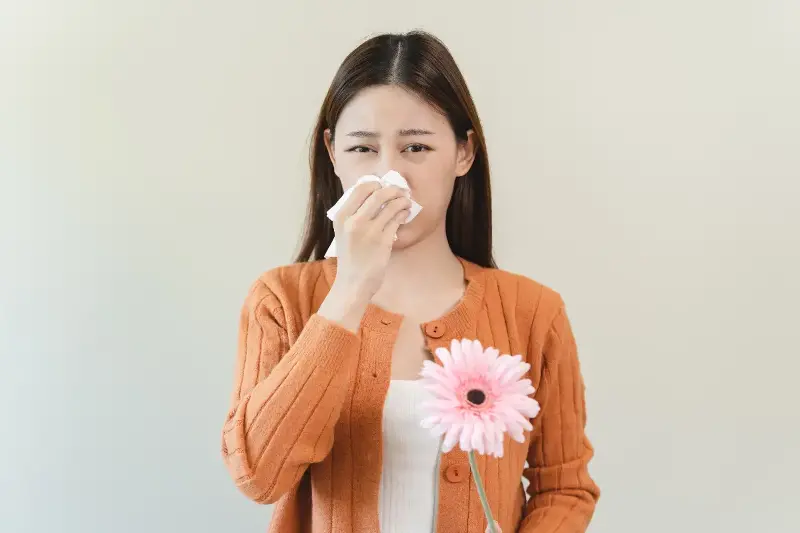Allergies are an everyday challenge for millions across Southeast Asia and the world. Whether it’s sneezing from pollen, scratching due to dust, or struggling with a sore throat from certain foods, allergies can disrupt everything from sleep to social gatherings. But why do our bodies react this way, and what’s actually happening underneath all those symptoms? Let’s explore the fascinating science behind allergies, uncover some surprising triggers, and share modern strategies that just might help you finally find relief.

The Science Behind Allergies: Why Do We React?
At its core, an allergy is your immune system’s overreaction to something that’s normally harmless—like peanuts, shrimp, or pollen. Instead of ignoring these substances, your body mistakes them for dangerous invaders. The immune system jumps into action, releasing chemicals like histamine that create classic symptoms: sneezing, itching, watery eyes, rashes, or more severe reactions, such as difficulty breathing.
Why does this happen to some people and not others? Genetics play a major role. If your parents or siblings have allergies, your risk is higher. Environmental factors also matter. Exposure to certain substances as a child—like dust mites or pet dander—can increase your chance of developing allergies. Interestingly, studies suggest that people living in extremely clean environments may be more susceptible, as their immune systems don’t have enough real threats to practice on and start reacting to harmless things instead. This is sometimes called the “hygiene hypothesis.”
Common and Surprising Triggers in Southeast Asia
In Southeast Asia’s humid, tropical climate, allergy triggers are everywhere. Top culprits include:
- Dust Mites: These microscopic creatures thrive in warm, damp environments—found in bedding, carpets, and even stuffed toys. Their waste is a powerful allergen.
- Pollen: While not as extreme as in temperate climates, certain flowers, grasses, or trees release pollen that sets off sneezing fits.
- Mould: High humidity encourages mould growth in bathrooms, kitchens, and hidden corners. Breathing in mould spores can trigger coughing, wheezing, or skin rashes.
- Foods: Shellfish, peanuts, soy, and eggs are leading food-trigger culprits across Asia. For some, even touching these foods can spark a reaction.
Surprising triggers include air pollution—common in urban centres like Jakarta or Bangkok—which can irritate airways and worsen allergy symptoms. Sometimes, even beloved pets can be the source of discomfort, as their saliva, skin flakes, and fur become airborne allergens.

How Allergies Affect Your Body and Mind
We often think of allergies as a simple sniffle, but the effects can run much deeper. Congested sinuses may interfere with sleep and reduce daily productivity. Skin allergies can sap your self-confidence or make you wary of social situations. For children, allergies can impact concentration at school, leading to missed opportunities both academically and socially. Severe food or insect allergies can create anxiety over dining out or enjoying the outdoors.
Yet, there’s power in understanding—knowing why symptoms occur can help manage not just the allergy, but the frustration and stress that often comes with it.
Modern Solutions for Allergy Sufferers
The great news? Allergy science is advancing rapidly. If you’re tired of suffering, there are more solutions than ever, including:
- Allergen Avoidance: Identify your triggers and minimise exposure. Use protective bedding covers, keep windows closed during pollen seasons, and wash hands and face after being outdoors.
- Medication: Over-the-counter antihistamines, nasal sprays, and decongestants can help, but always consult your doctor, especially with children.
- Immunotherapy: For stubborn allergies, doctors can prescribe “allergy shots” or mouth-dissolving tablets, gradually training your immune system to ignore the allergen.
- Lifestyle Adaptations: Simple steps—like regular cleaning, using air purifiers, and maintaining low indoor humidity—can make a big difference.
Increasingly, nutritionists are investigating the role of diet in allergies. Some evidence suggests that gut health may influence how the immune system responds, opening up exciting avenues for prevention and management.

When Should You See a Doctor?
If your allergy symptoms are mild and occasional, simple lifestyle changes might be enough. But if you experience severe reactions—trouble breathing, intense swelling, or rapid heartbeat—seek medical help immediately. Children with allergies should always be evaluated by a specialist, as early intervention can make a lifelong difference.
Final Thoughts: Embracing Relief, Embracing Life
Living with allergies doesn’t mean living in fear. With a clearer understanding of your triggers and proactive management, you can reclaim everyday joys—from outdoor adventures to sensational Southeast Asian cuisine. The world of allergy science is evolving quickly; stay informed, talk to your doctor, and remember: relief is not just a dream, it’s increasingly within your reach.
